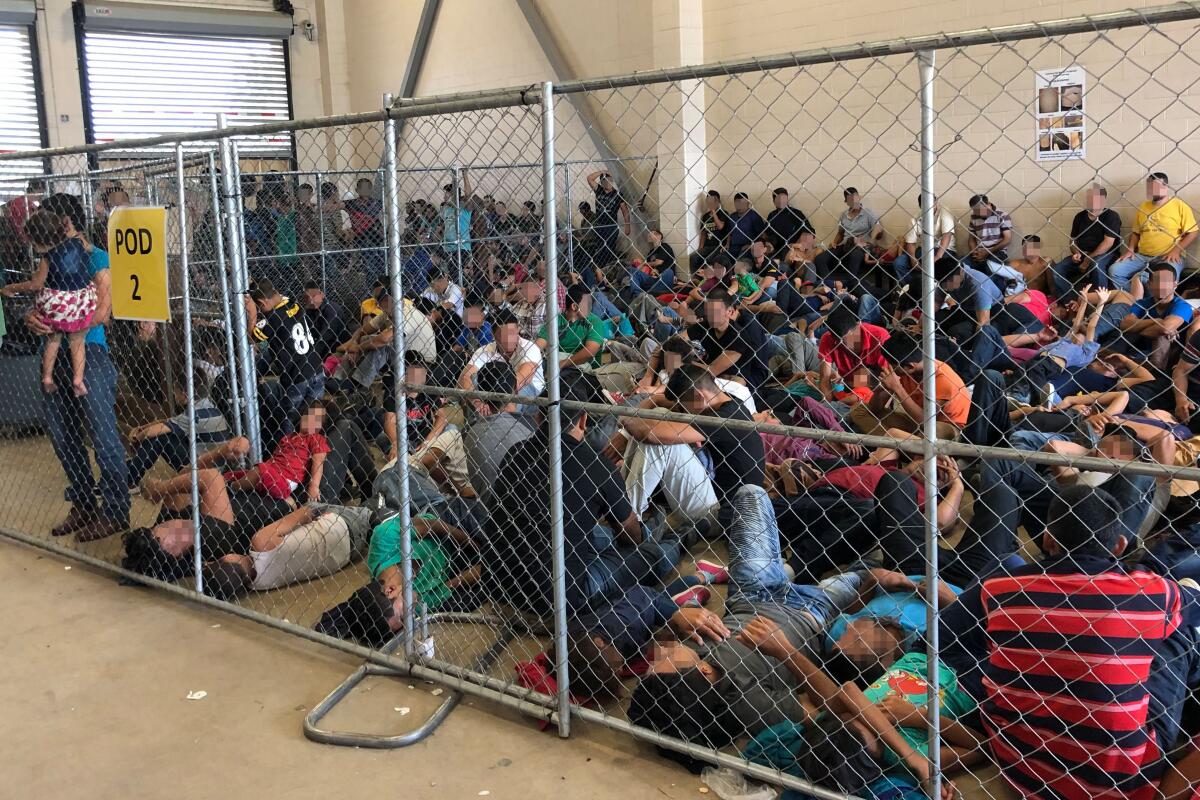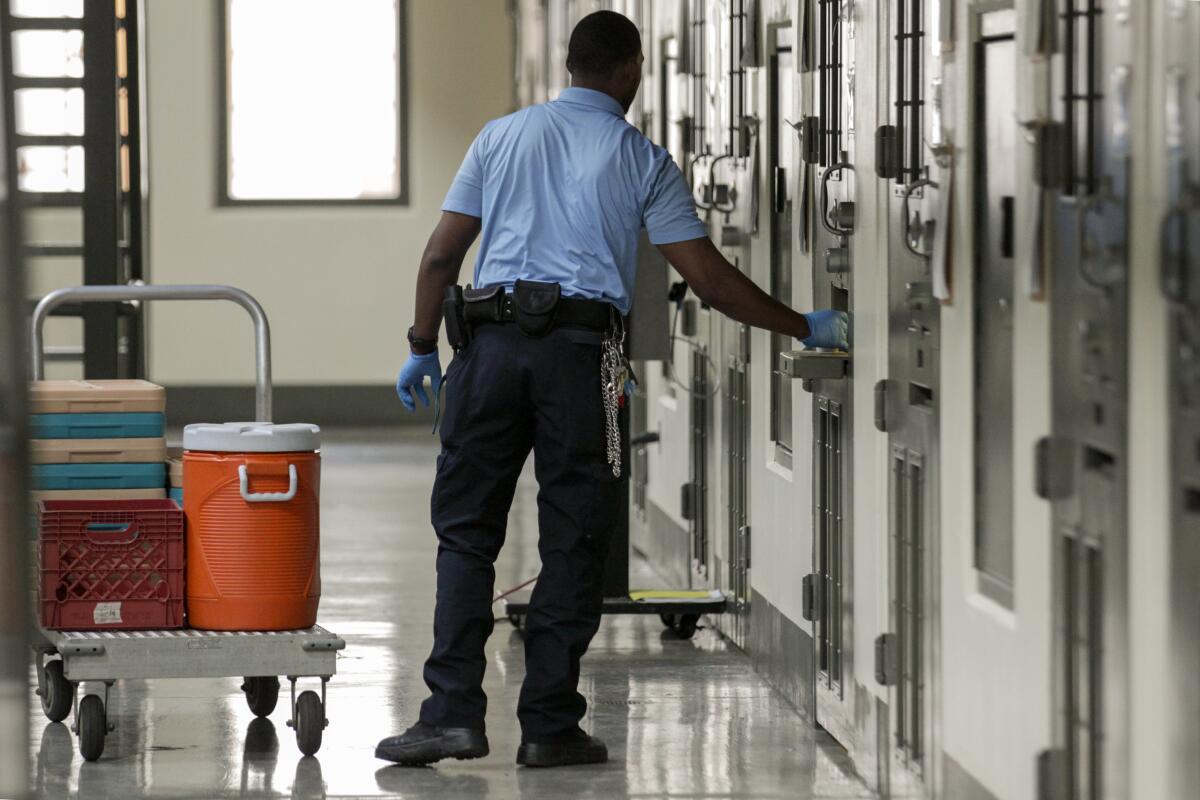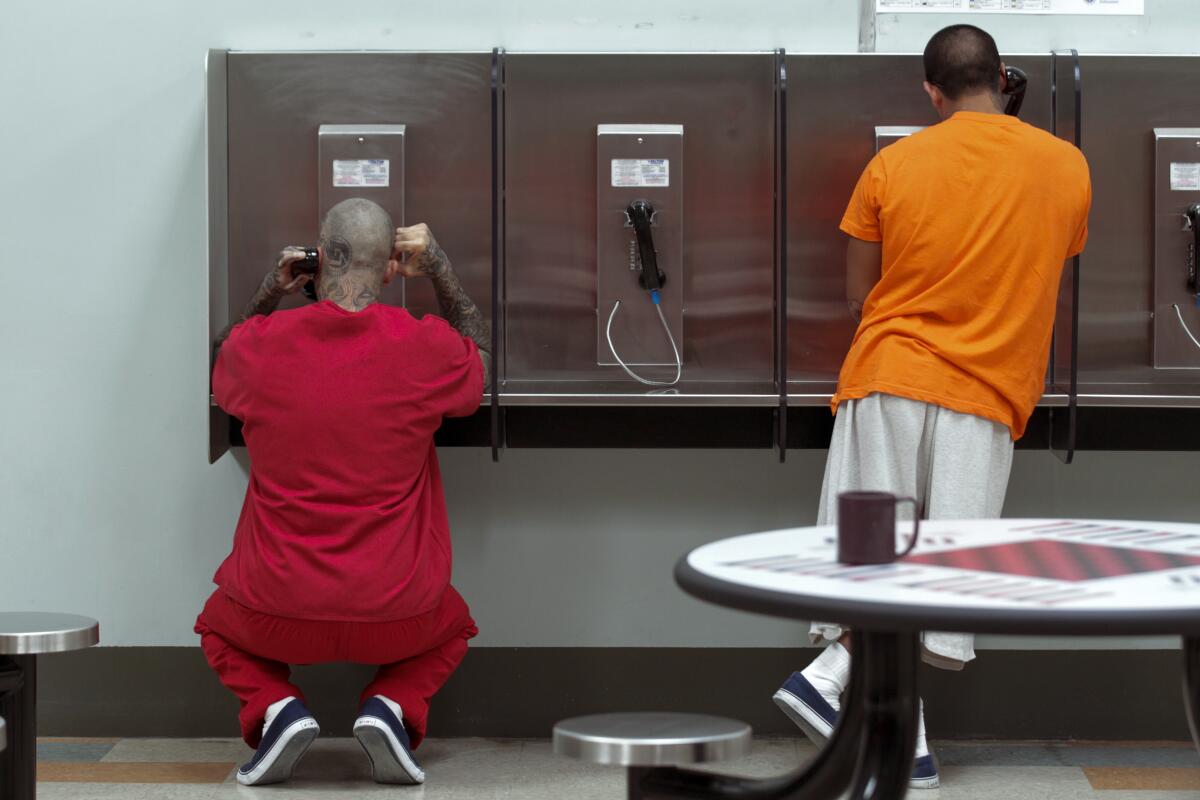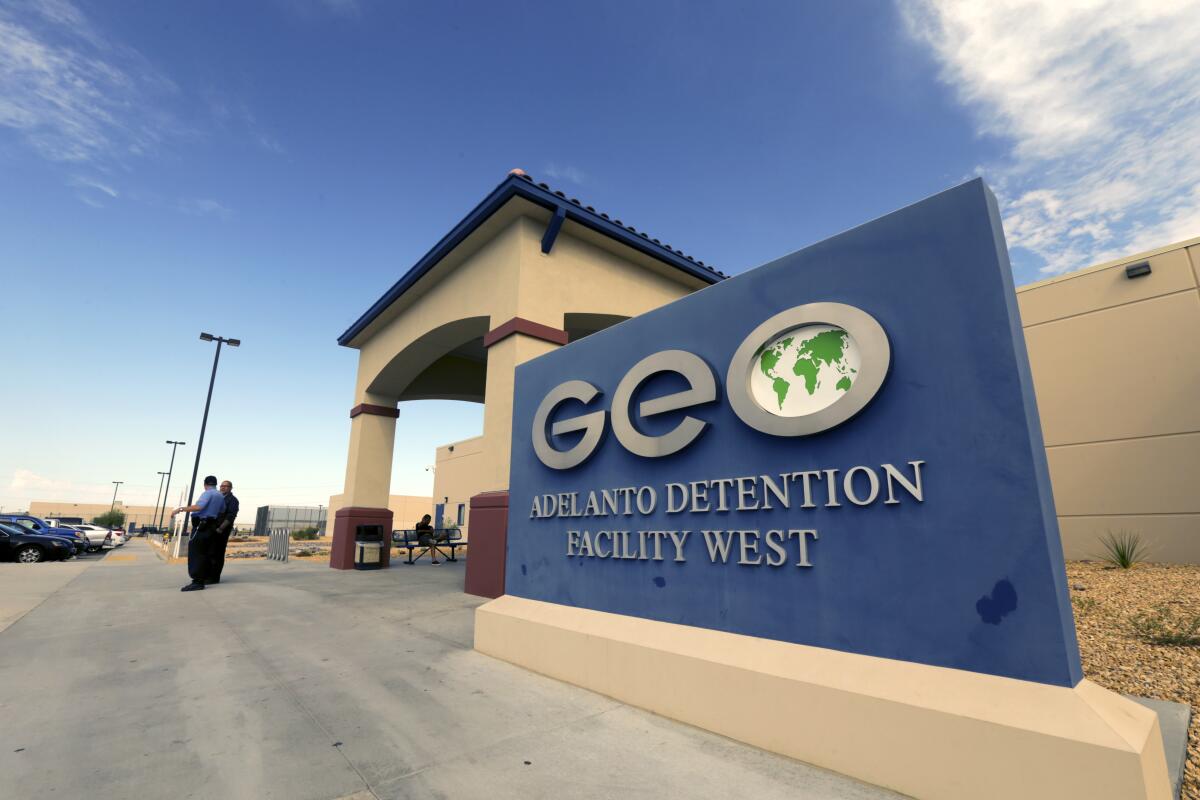ICE provides ‘deplorable’ healthcare to detained immigrants, advocates allege in massive lawsuit

- Share via
Immigrant rights advocates filed a sweeping class-action lawsuit in federal court against the Trump administration Monday, alleging that lax oversight by Immigration and Customs Enforcement and the Department of Homeland Security has caused severe deficiencies in medical and mental healthcare, as well as discrimination against detainees with disabilities, in nearly 160 facilities across the country.
The lawsuit was filed in U.S. District Court in Los Angeles by the Southern Poverty Law Center, Civil Rights Education and Enforcement Center, Disability Rights Advocates, and the law firm Orrick, Herrington & Sutcliffe LLP. The groups aren’t seeking monetary damages, but rather asking the court to ensure that ICE closely monitor its facilities and improve healthcare for the approximately 55,000 immigrants detained on any given day.
Advocates have long said that detainees, especially those in rural facilities, experience delays and denials of healthcare. Many previous lawsuits have been filed on behalf of specific people detained by ICE. But Monday’s suit argues that the agency is systematically denying care to those in its custody.

Plaintiffs, including 15 current detainees and two nonprofits, say that ICE and its parent agency, the DHS, have failed to take action against what they characterize as dangerously inadequate medical and mental healthcare, improper use of solitary confinement, and deficient accommodations for people with disabilities.
The lawsuit cites cases of detainees confined to their cells without access to wheelchairs or canes, diabetics denied insulin and those suffering from post-traumatic stress disorder kept in isolation for months.
Private companies run most of the nation’s detention facilities. It costs the federal government $134 a day on average to maintain one adult detention bed, according to ICE’s fiscal year 2018 budget. The National Immigration Forum calculates a higher cost of $208 a day. Each family residential center bed, which keeps mothers or fathers with their children, costs about $319 a day, according to the ICE budget.
Lawyers say that problems such as short staffing, unqualified medical care providers, and delays or denials of treatment, are not limited to a few facilities but are rampant and systemic. They say that immigrants with viable legal claims are forced to choose between continuing to suffer in detention or giving up on their cases.
“ICE cannot simply contract with third parties to operate its detention centers and then wash its hands of the deplorable, unlawful conditions in those detention centers,” said Tim Fox, co-executive director of CREEC.

ICE spends more than $250 million annually on healthcare services. According to the agency, detainees receive a comprehensive physical exam within two weeks of arrival to identify medical, mental health and dental conditions requiring monitoring or treatment. Nine of 396,000 detainees died in ICE custody during fiscal year 2018.
Spokesman Shawn Neudauer said the agency doesn’t comment on pending litigation but that the “absence of comment should in no way be construed to suggest that ICE thinks any particular suit has merit.”
Seven of the plaintiffs are detained in California facilities.
Abdullah Fraihat, a 57-year-old man detained at the Adelanto ICE Processing Center near Victorville since December 2016, was denied a vision surgery recommended by an off-site doctor in April. Last month, a doctor told him that his vision had deteriorated too severely to be restored.
Marco Montoya Amaya, a 41-year-old detainee at Mesa Verde ICE Processing Center near Bakersfield, was tentatively diagnosed with end-stage neurocysticercosis — an invasive but treatable brain parasite that causes epilepsy — more than a year ago but has received no treatment, according to the lawsuit.

Luis Manuel Rodriguez Delgadillo, a 29-year-old Adelanto detainee diagnosed with bipolar disorder and schizophrenia, had stabilized his mental health through medication, family support and the help of a psychiatrist before he was detained. But since his detention in May, medication changes, lack of therapy and increased stressors caused him to miss two court dates after he was placed in medical observation for expressing suicidal thoughts.
More than 55,000 people were being detained by ICE as of early August. That’s up from some 34,000 people a day on average in 2016, and significantly higher than the target of less than 41,000 set by Congress.
A review by DHS’s own Office of Inspector General found 14,000 health and safety “deficiencies” identified by various inspections at contracted facilities between October 2015 and June 2018. “These deficiencies include those that jeopardize the safety and rights of detainees, such as failing to notify ICE about sexual assaults,” the inspector general found. “Despite these identified deficiencies, ICE only imposed financial penalties twice.”
Karlyn Kurichety, an attorney at the nonprofit Al Otro Lado, said that the organization is prevented from taking on new cases because it must spend so much time advocating for what she described as clients’ basic survival while in custody.
Kurichety said that several clients experienced miscarriages while in custody, HIV-positive clients were detained without access to their medication and clients who contracted contagious diseases like chicken pox or measles spent several months in quarantine without access to attorneys.
“Clients struggling with serious untreated health issues that are often caused by or exacerbated by their detention cannot be expected to simultaneously defend themselves from deportation while fighting for their lives due to illness,” she said.
More to Read
Sign up for Essential California
The most important California stories and recommendations in your inbox every morning.
You may occasionally receive promotional content from the Los Angeles Times.










